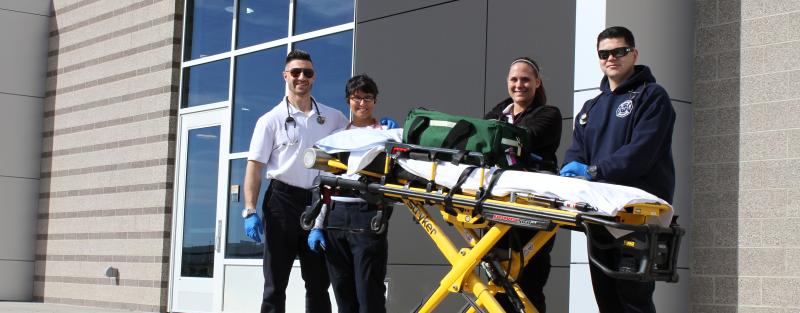Explore the classes that will teach you the skills you need to earn an EMS associate degree and become a basic EMT. Study anatomy and physiology, IV/IO therapy, learn how to assess and treat people in emergency situations, and choose an elective path in either advanced EMT or fire science.
Because this degree includes the 15-week EMT training program, which has specific requirements and entry dates, see the EMT application information page for more information about getting started with your EMS degree. If you have questions about entering the EMS degree program, email ems@aims.edu.
